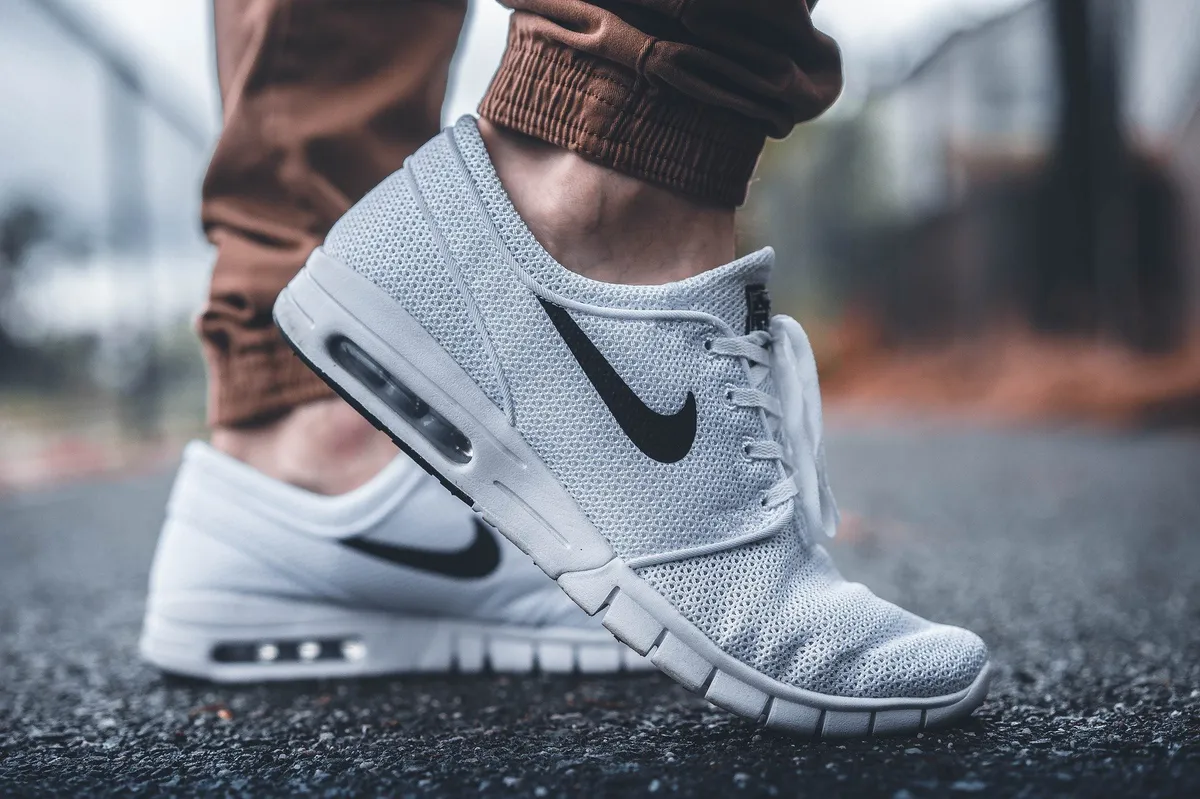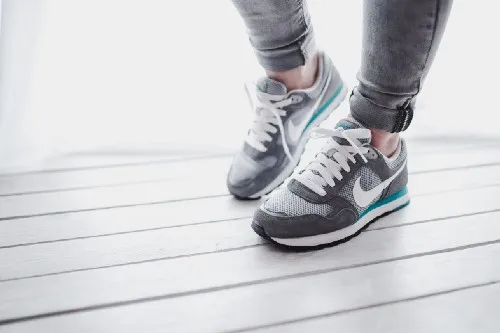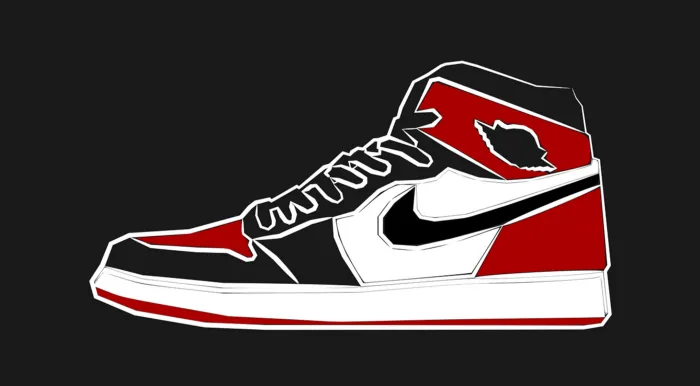How and Why Nike is Using Blockchain to Disrupt the Sneaker Industry

As someone with a passion for both running in my Nike shoes and for blockchain, my proverbial ears perked up when Nike filed for a blockchain patent in 2019. While blockchain has been heralded for its potential to revolutionize industries such as Supply Chain, I was curious about how one of the world’s most recognized brands intended to utilize blockchain as a part of its business-to-consumer strategy.
The Problem of Fake Nikes
One of the greatest frustrations for Nike’s customers is the potential for purchasing counterfeit shoes, especially regarding their limited run collections. As sneakerheads and sports fanatics utilize Instagram and TikTok to trade, sell, and show off their freshest kicks, the demand for rare shoes has only increased in recent years, bringing with it a slew of people looking to profit off of the buzz by counterfeiting the company’s most popular sneakers.
Just how big of a problem can fake shoes actually be for Nike? In the past few months alone, thousands of pairs of fake Nikes have been seized by authorities, amounting to millions of dollars worth of shoes that could have been stolen from the company by counterfeiters, and these recoveries represent only a fraction of phony products in circulation. It is a growing problem for Nike, and it must be addressed to maintain the integrity of their brand, as well as other high profile and oft-counterfeited products.
Current Solutions Have Proven Insufficient
Even Nike’s website offers no solution to its customers other than to only purchase products directly from them, either from one of their retail stores or from their website and its accompanying mobile App, but this does not help those who have already purchased expensive counterfeit goods, or those who want to buy a shoe that is no longer available for purchase directly from Nike, such as sold out limited releases and vintage shoes.
Nike has tried other attempts to address the problem, most notably their failed partnership with Amazon to ensure that customers could purchase genuine Nikes through an established channel, however, the constant battle for Nike to stand out on Amazon next to other sellers — who may or may not be selling authentic shoes — led them to terminate their deal with Amazon in 2019.
Nike has been clear that their intention is to build direct relationships with their customer base going forward, driving customers to buy directly from them, and they have been seeking a solution to increase customer confidence and maintain brand integrity while simultaneously gaining greater control over how their products get to their consumers. They also want more insight into exactly what their customers want.

“Breeding” Shoes
However, for me token verification is not the most interesting aspect of Nike’s plans. The patent goes on to include the following:
Using the digital asset, the buyer is enabled to securely trade or sell the tangible pair of shoes, trade or sell the digital shoe, store the digital shoe in a cryptocurrency wallet or other digital blockchain locker, intermingle or “breed” the digital shoe with another digital shoe to create “shoe offspring,” and, based on rules of acceptable shoe manufacturability, have the newly bred shoe offspring custom made as a new, tangible pair of shoes.

It seems that Nike is paving the way for users to create their own shoes by actually “breeding” pairs together, perhaps by combining their favorite elements or colors of one model with those of another (within preset constraints). The shoes can then be made by Nike and sent to the creator. It is unclear exactly what this process will look like, and how it will differ from their current Nike By You offering, but it is an interesting concept indeed, and it will be exciting to see how they implement this strategy.
It almost seems as if they view their shoes as living things, and they want to reward their customers for using “CryptoKicks” for their intended activity (such as running):
In some embodiments, a digital asset may include genotype information and/or phenotype information for a digital shoe….virtual user interactions that alter (e.g., speed up or slow down) maturity or increase/decrease a likelihood of certain traits developing; real-world interactions of a user (e.g., running increases number of good/desirable qualities, increases speed of maturity of virtual offspring, etc.); shoe cloning and allowing an owner to set a total number of clones that can be produced from a desirable offspring for actual real-world production. Some optional features may also include: surrogacy features for breeding plans between two or more discrete digital shoes; parenting/nannying features provided by a third-party entity that does not own the digital shoe; behavioral and animated features designed to make a digital shoe appear more life-like (e.g., personalities that change over time); “breeding rights” for a digital shoe may be governed by one or more real-world manufacturing restrictions; ownership rights for each successive generation of a digital shoe may be tied back to the original, real-world shoe (e.g., wholly or partially; by percentage of genotypic contribution, etc.) via encryption key to the originally associated virtual product.

It is clear that Nike is attempting to usher in a new era for clothing, in which users interact with and take ownership of their footwear in ways that would not have been conceivable only a short time ago. This patent describes an reality in which the physical and virtual come together to create a unique experience for each user, perhaps even rewarding them for reaching fitness goals and introducing gamification into our fitness routines. Will our shoes start telling us how to improve our form, or better control our heart rate? Only time will tell.
Will Consumers Adopt “CyptoKicks”?
In addition to working to solve the problem of counterfeiting and establishing direct sales avenues with their customers, Nike is working to change the way we interact with the clothing that we wear. I imagine that their aim is to deepen the relationship that customers have with their brand in ways that have never before been possible, securing their success for a new generation.
Utilizing blockchain in this way is an interesting application, but will users adopt this technology? Will they care? Certainly the aspect of using tokens to authenticate shoes will be a popular step and will be embraced by collectors and die hard fans of the brand, and Nike will use its vast network of relationships with celebrities and fashion influencers to bring “CryptoKicks” to the public view in full force when the time comes.
Personally, I find this to be an exciting and innovative approach, and I look forward to seeing Nike implement this product and strategy with great anticipation. When a brand such as Nike starts making moves to bring blockchain to the public, it signals to the rest of the world that blockchain will begin solving not just abstract economic problems but also those that are relevant to our hobbies and daily interactions.
Share this post
Stay in the Conversation
Thoughtful essays on web development, SEO, and automation — sent occasionally, never spammed.